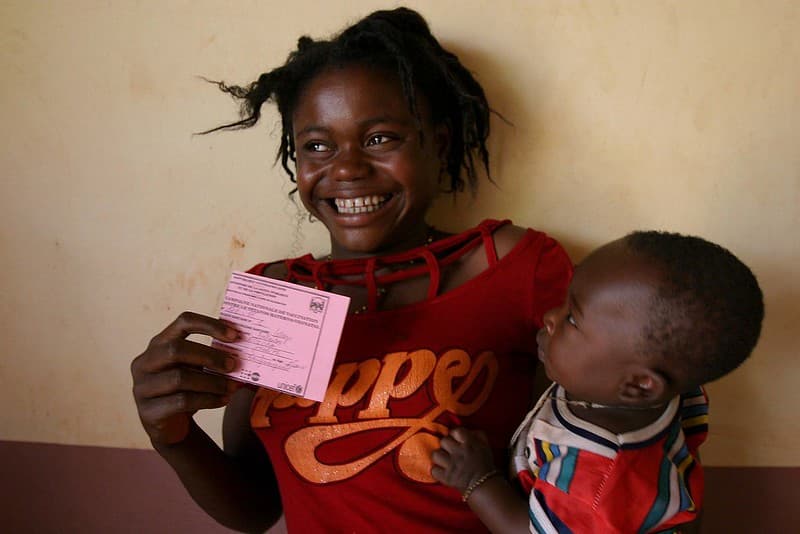National Project Coordinator
Islamabad
- Organization: UNIDO - United Nations Industrial Development Organization
- Location: Islamabad
- Grade: Level not specified - Level not specified
-
Occupational Groups:
- Project and Programme Management
- Managerial positions
- Closing Date: 2024-02-13
Requisition ID: 3340
Grade: SB5 - Local Professional (Mid-Level & Senior)
Country: Pakistan
Duty Station: Islamabad
Category: National Consultant
Type of Job Posting: Internal and External
Employment Type: NonStaff - Regular
Contract Duration: 6 months
Application deadline: 13-Feb-2024, 11:59 PM (CEST)
Vacancy Announcement
TEMPORARY APPOINTMENT OF PROJECT PERSONNEL
Only nationals or permanent residents of the country of the duty station are considered eligible.
Female candidates are encouraged to apply.
ORGANIZATIONAL CONTEXT
The United Nations Industrial Development Organization (UNIDO) is the specialized agency of the United Nations that promotes industrial development for poverty reduction, inclusive globalization and environmental sustainability. The mission of the United Nations Industrial Development Organization (UNIDO), as described in the Lima Declaration adopted at the fifteenth session of the UNIDO General Conference in 2013, is to promote and accelerate inclusive and sustainable industrial development (ISID) in Member States. The relevance of ISID as an integrated approach to all three pillars of sustainable development is recognized by the 2030 Agenda for Sustainable Development and the related Sustainable Development Goals (SDGs), which will frame United Nations and country efforts towards sustainable development in the next decade. UNIDO’s mandate is fully recognized in SDG-9, which calls to “Build resilient infrastructure, promote inclusive and sustainable industrialization and foster innovation”. The relevance of ISID, however, applies in greater or lesser extent to all SDGs. Accordingly, the Organization’s programmatic focus is structured in four strategic priorities: Creating shared prosperity; Advancing economic competitiveness; Safeguarding the environment; and Strengthening knowledge and institutions.
Each of these programmatic fields of activity contains a number of individual programmes, which are implemented in a holistic manner to achieve effective outcomes and impacts through UNIDO’s four enabling functions: (i) technical cooperation; (ii) analytical and research functions and policy advisory services; (iii) normative functions and standards and quality-related activities; and (iv) convening and partnerships for knowledge transfer, networking and industrial cooperation. Such core functions are carried out in Departments/Offices in its Headquarters, Regional Offices and Hubs and Country Offices.
The Directorate of Technical Cooperation and Sustainable Industrial Development (TCS), headed by a Managing Director, oversees the Organization's development of capacities for industrial development as well as industrial policy advice, statistics and research activities and the Organization's normative contribution to Member States and global development community in achieving the SDGs. The Directorate also ensures the application of strategies and interventions for sustainable industrial development related to Environment, Energy, SMEs, Competitiveness and Job creation, as well as Digitalization and Artificial Intelligence. Through coordination in-house and with Member States and industry stakeholders, it ensures that the services provided in these areas contribute toward effective and appropriate technical, business and policy solutions and are focused on results and on realizing any potential for scaling up and positioning UNIDO as a leading platform for industrial development in developing countries and global fora.
This position is located under the Montreal Protocol Division (TCS/MPD) that is responsible for planning, developing and implementing activities in Member States to facilitate compliance with the Montreal Protocol and, in particular, it's Kigali Amendment and to support countries to achieve their determined contributions to reduce emissions of greenhouse gases under the Paris Agreement. Making use of the capacity building and policy support, the services of the Unit foster transformation in manufacturing concerning technologies used in refrigeration, air conditioning and insulation with the effect of a reduction and change in working fluids and chemicals and ultimately a reduction of total greenhouse gas emissions.
PROJECT CONTEXT
The Montreal Protocol on Substances that Deplete the Ozone Layer is an international treaty that aims to protect the ozone layer by eliminating the production and consumption of ozone-depleting substances (ODS). Established in 1987 under the Vienna Convention for the Protection of the Ozone Layer, this agreement has been ratified by 197 States (Parties). In 1990, the Parties of the Montreal Protocol established the Multilateral Fund for the Implementation of the Montreal Protocol (MLF) to finance "non-repayable" projects to enable developing countries to meet their commitments under the Protocol.
Pakistan signed the Protocol in January 1989 and ratified it in December 1992 along with ratification of the London Amendment. Pakistan also ratified the subsequent amendments including Copenhagen Amendment in 1995, Montreal Amendment in 2005 and Beijing Amendment in 2005. Pakistan has not yet ratified the Kigali Amendment.
In September 2007, Parties to the Montreal Protocol undertook through MOP Decision XIX/6 (Annex I) to anticipate the phase-out of HCFCs, substances used as a technological alternative to CFCs, whose production and consumption were eliminated by all Parties to the Montreal Protocol in 2010. In 2009 and 2010, the Ministry of the Environment (currently Ministry of Climate Change, MoCC) coordinated the elaboration of the overarching strategy for HCFC phase-out in the Country. In the course of this initial preparatory works, the investment umbrella project for five lead industries in the refrigeration sector has been prepared to phase out 722.64 MT (79.49 ODP tonnes) of HCFC 141b from their polyurethane foam manufacturing components. The project has been approved for USD 4,840,849.00 by 60th ExCom in April 2010. Subsequently HPMP Stage I, as a strategy document has been approved by 62nd ExCom in the same year of 2010 to be co-implemented by UNIDO and UNEP.
The HPMP Stage-II project was submitted to 76th ExCom and was approved at a total cost of US$ 5,679,476 including agencies support cost.US$ 4,776,772 plus agency cost of US$ 334,374 was approved for UNIDO to phase out 309.5 MT (34.05 ODPT) of HCFC 141b in 7 industries in Thermoware subsector, 224.02 MT (24.64 ODPT) in 4 industries in sandwich panel subsector and 134.4 MT (7.39 ODPT) in Domestic Air Conditioning subsector. US$ 503,000 plus agency support cost of US$ 65,330 for UNEP, co-implementing agency for non-investment component in servicing sector. At its 85th Meeting in July 2020, the ExCom further approved the funding for the preparation of the HPMP Stage III for the Government of Pakistan. The HPMP Phase-out commitment is 97.5% for the stage III for the period 2021 to 2030.
Under the close supervision of the Project Manager, the National Project Coordinator will work on the following projects, the main activities of which are listed below:
HCFC Phase-out Management Plan Stage II in Pakistan
The strategic objectives of the stage-II HPMP is to ensure that the Pakistan’s obligation is met in terms of the Montreal Protocol’s control measures for the phasing out of HCFC consumption in manufacturing and servicing sectors to meet the 2020 targets. The stage-II HPMP shall cover phasing out of HCFCs in some sub-sectors of manufacturing and some segment of the servicing sector to achieve freeze and second target. The following activities will be implemented by UNIDO during stage II of the HPMP in Pakistan:
Manufacturing sector:
- Phase-out of HCFC-141b in seven thermoware PU foam industries
- Phase-out of HCFC-141b in four PU discontinuous sandwich panel foam industries
- Phase-out of HCFC-142b/HCFC-22 from manufacturing of XPS at Symbol
- Phase-out of HCFC-22 in the manufacture of AC in Dawlance
Servicing sector:
- Procurement of servicing equipment
- Project Management Unit
HCFC Phase-out Management Plan Stage III in Pakistan
The strategic objectives of the stage-III HPMP is to ensure that Pakistan’s obligation is met in terms of the Montreal Protocol’s control measures for the phasing out of HCFC consumption in manufacturing & servicing sectors to meet the 2030 targets. The stage-III HPMP shall cover phasing out of HCFCs in some sub-sectors of manufacturing and some segment of the servicing sector to achieve freeze and third target.
The following activities will be implemented by UNIDO during stage III of the HPMP in Pakistan:
- Preparation of the required investment document(s) to phase out HCFC in the following sub-sectors in manufacturing:
- 73.66 MT of HCFC-141b (8.11 ODPT) in manufacturing of Commercial Refrigeration, PU Pipe Insulation & Spray Foam
- 193.76 MT of HCFC-22 (10.66 ODPT) in manufacturing of Domestic ACs. It is important to highlight that the consumption of HCFC-22 in the remaining 5 industries was 34.1 MT in 2020. The average consumption of HCFC-22 in the remaining 5 industries during 2018-2020 (3 years average) was 52.0 MT (2.86 ODPT). Most of the HCFC-22 has been converted to R-410A by the industries at their own cost.
- 22.65 MT of HCFC-22 (1.25 ODPT) in manufacturing of Commercial ACs. It is important to highlight that the consumption of HCFC-22 in these 4 industries was 13.4 MT in 2020. The average consumption of HCFC-22 in these industries during 2018-2020 (3 years average) was 20.0 MT (1.1 ODPT).
- Policy/regulations study and development (Legislation) incl. policy and standards study on reclaim centers.
- Enforcement and customs training incl. acquisition of refrigerant identifiers to support import control.
- Capacity building of RAC servicing technicians and workshops incl. provision of training tools/equipment to the training schools and the qualification assessment awarding institutes, acquisition of tools/equipment for selected servicing workshops.
- National recycling, recovery and reclamation scheme incl. development of local guidelines for reclamation facilities and business model for reclaim center, establishing national RR&R centers, building RR&R networks, establish 4 training centres, develop Certification procedures for reclaim centers hosts, RAC technicians and Servicing workshops.
- Promotion of alternative technologies incl. organize study tours, dissemination of information, conduct consultation/coordination meetings with relevant stakeholders (e.g. industry and government), conduct research on safety and performance of Low GWP technologies, technical Assistance to big end-users, technical Assistance to establish countrywide registration system - tracking of refrigerant management, feasibility study of the final disposal of unwanted refrigerants.
FUNCTIONAL RESPONSIBILITIES
Under the supervision of the Project Manager, the National Project Coordinator will be responsible for appraising, adjusting and presenting project proposals, and monitoring programme execution, identifying problems and utilizing information as an input to corrective actions to promote effective project management, develops and administers technical cooperation projects. More specifically, the incumbent shall carry out following main duties.
- Locate and analyze specific economic and social data and distilling and synthesizing information relevant to proposed projects;
- Identify, describe and justify project possibilities related to a particular project and consistent with approved technical cooperation programmes and ongoing activities;
- Appraise, review and adjust project proposals to ensure consistency with national, sub regional, regional and sectoral priorities and programmes, and with available resources; formulate and present such proposals on the basis of technical and substantive inputs in accordance with required format for final review and approval;
- Develop schedules, arrangements and methods for the management of the execution of individual project/s, in consultation with project personnel, technical, substantive and administrative service units;
- Exchange information required for project formulation and execution with government officials in planning, finance, donor input coordination and sectoral functions, as well as with representatives of multilateral and bilateral donor agencies;
- Monitor and expedite project execution systematically through discussions and correspondence with technical, substantive and project staff, field visits, analysis of periodic project progress reports, participation in tripartite reviews and mid-term project evaluations; utilize information obtained as an input to corrective decision-making and revisions;
- Organize and conduct briefings and debriefings on projects with special regard for the country, sub regional and regional aspects, resources and development characteristics, with a view to maximizing project performance levels.
MINIMUM ORGANIZATIONAL REQUIREMENTS
Education: Advanced university degree in engineering, sciences, economics, business administration, international relations, environmental law or any other discipline with relevant specialization.
Technical and Functional Experience:
At least five (5) years of professional experience in technical cooperation project management or portfolio project management including some exposure at the international level, is required. Ability to research and analyse information independently and recommend solutions is required. Ability to write in a clear and concise manner is required. Experience in evaluating the needs, conditions and problems in developing countries is desirable. Experience in implementing projects in Africa is desirable. Experience in the implementation of international cooperation projects for the adoption of multilateral environment agreements is desirable. Experience with UNIDO’s corporate project management systems (SAP) is desirable.
Languages: Fluency in written and spoken English and French is required. Working knowledge of or fluency in any other UN official language is desirable.
REQUIRED COMPETENCIES
Core values:
WE LIVE AND ACT WITH INTEGRITY: work honestly, openly and impartially.
WE SHOW PROFESSIONALISM: work hard and competently in a committed and responsible manner.
WE RESPECT DIVERSITY: work together effectively, respectfully and inclusively, regardless of our differences in culture and perspective.
Core competencies:
WE FOCUS ON PEOPLE: cooperate to fully reach our potential –and this is true for our colleagues as well as our clients. Emotional intelligence and receptiveness are vital parts of our UNIDO identity.
WE FOCUS ON RESULTS AND RESPONSIBILITIES: focus on planning, organizing and managing our work effectively and efficiently. We are responsible and accountable for achieving our results and meeting our performance standards. This accountability does not end with our colleagues and supervisors, but we also owe it to those we serve and who have trusted us to contribute to a better, safer and healthier world.
WE COMMUNICATE AND EARN TRUST: communicate effectively with one another and build an environment of trust where we can all excel in our work.
WE THINK OUTSIDE THE BOX AND INNOVATE: To stay relevant, we continuously improve, support innovation, share our knowledge and skills, and learn from one another.
This appointment is limited to the specified project(s) only and does not carry any expectation of renewal.
Employees of UNIDO are expected at all times to uphold the highest standards of integrity, professionalism and respect for diversity, both at work and outside. Only persons who fully and unconditionally commit to these values should consider applying for jobs at UNIDO.
All applications must be submitted online through the Online Recruitment System. Correspondence will be undertaken only with candidates who are being considered at an advanced phase of the selection process. Selected candidate(s) may be required to disclose to the Director General the nature and scope of financial and other personal interests and assets in respect of themselves, their spouses and dependents, under the procedures established by the Director General.
Visit the UNIDO website for details on how to apply: www.unido.org
NOTE: The Director General retains the discretion to make an appointment to this post at a lower level.
Notice to applicants:
UNIDO does not charge any application, processing, training, interviewing, testing or other fee in connection with the application or recruitment process. If you have received a solicitation for the payment of a fee, please disregard it. Vacant positions within UNIDO are advertised on the official UNIDO website. Should you have any questions concerning persons or companies claiming to be recruiting on behalf of UNIDO and requesting payment of a fee, please contact: recruitment@unido.org








